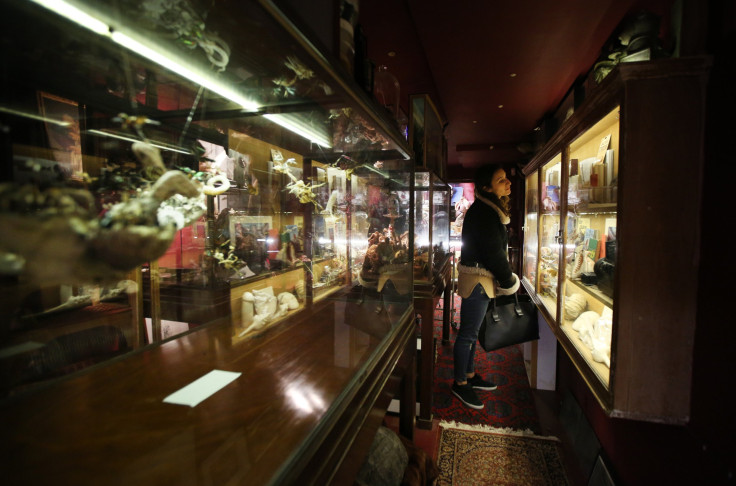British Museum To Return Zimbabwean War Skulls? Mugabe Slams UK Government For Racism, Sadism

The skulls of Zimbabwean war “heroes," which were reportedly on exhibit in British museums, could soon be returned to the southern African nation. Zimbabwe’s President Robert Mugabe slammed the U.K. government for displaying the heads as symbols of colonial conquest. The repatriation process to return the remains to their home country was underway, the British Embassy in Zimbabwe’s capital Harare said, according to Zimbabwe's state-owned newspaper, the Herald.
On Monday, Mugabe accused the U.K. government of racism, sadism and insensitivity for displaying the skulls in London’s renowned British History Museum. The heads allegedly belonged to some of those who died fighting for Zimbabwe’s independence from British colonial rule in the First Chimurenga war in the 19th century.
"The First Chimurenga leaders, whose heads were decapitated by the colonial occupying force, were then dispatched to England, to signify British victory over, and subjugation of, the local population,” Mugabe said Monday during Heroes Day celebrations in Harare, according to the Herald. “Surely, keeping decapitated heads as war trophies, in this day and age, in a national history museum, must rank among the highest forms of racist moral decadence, sadism and human insensitivity.”
Mugabe Urges UK to Return Skulls of Zimbabwean Heroes: http://t.co/uHTcjLldBH #Zimbabwe pic.twitter.com/D8ZEJLNBgw
— allAfrica.com (@allafrica) August 11, 2015The British Embassy said it welcomed Mugabe’s statement and invited the Zimbabwean government to send delegates to London to meet with officials at the British History Museum and discuss the remains in question. National Museums and Monuments of Zimbabwe executive director Godfrey Mahachi said discussions were taking place between the two countries.
“Of course, Britain has confirmed that they are holding our human remains that got into the British museums sometime soon after the First Chimurenga,” Machachi said Thursday in an emailed response to the Herald. “The process that is now taking place is about how we are going to handle the repatriation. This is why there is an invitation for Zimbabwe to constitute a team to discuss with British authorities.”
The skulls at the British museum reportedly belonged to Mashayamombe Chinengundu of Mhondoro and Chief Makoni Chingaira of Rusape, who were beheaded by British invasion forces at the height of the First Chimurenga war in the 1890s, according to Zimbabwean newspaper the Sunday Mail. The war broke out in Zimbabwe between the indigenous Shona and Ndebele communities and the white British settlers from 1896 to 1897. It was Zimbabwe's first war of resistance against colonization by the British South Africa Company, which was expected to annex, administer territory and develop settlements for European settlers in southern Africa. Zimbabwe gained independence from Britain in 1980.
© Copyright IBTimes 2024. All rights reserved.




















